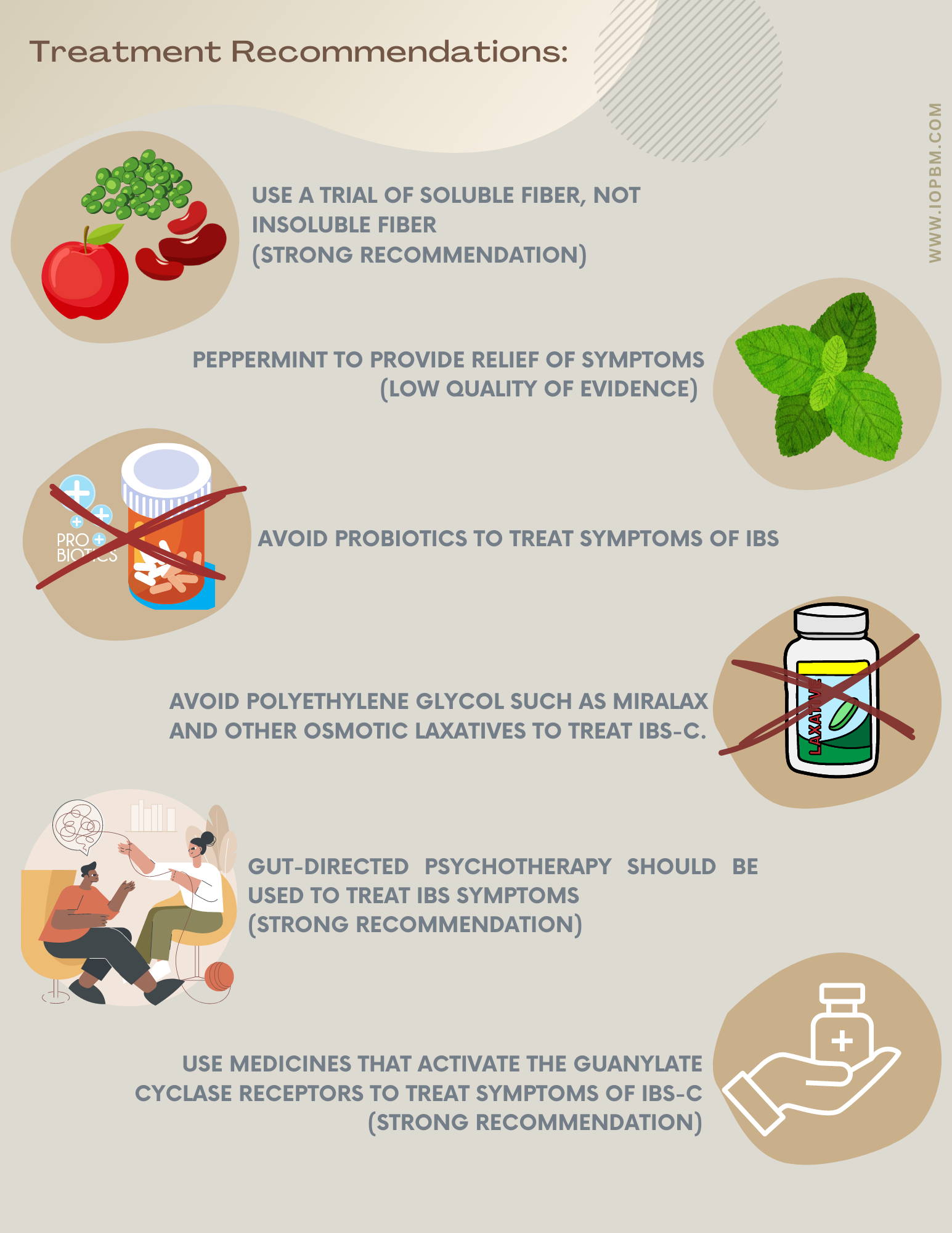No Products in the Cart

Limited trial of a FODMAP diet (6 weeks) to temporarily improve symptoms (low quality of evidence)
Use medicines that activate the 5-HT receptors in women younger than 65 with low cardiovascular risk factors to treat IBS-C.
Avoid bile-acid sequestrant medicines in patients with IBS-D
Alosteron can be used to relieve symptoms of IBS-D with severe symptoms who have failed conventional therapy
Tricyclic antidepressants should be used to treat symptoms of IBS (strong recommendation)
Avoid bile-acid sequestrant medicines in patients with IBS-D
Gut-directed psychotherapy should be used to treat IBS symptoms (strong recommendation)
Fecal transplant should be avoided in patients with IBS